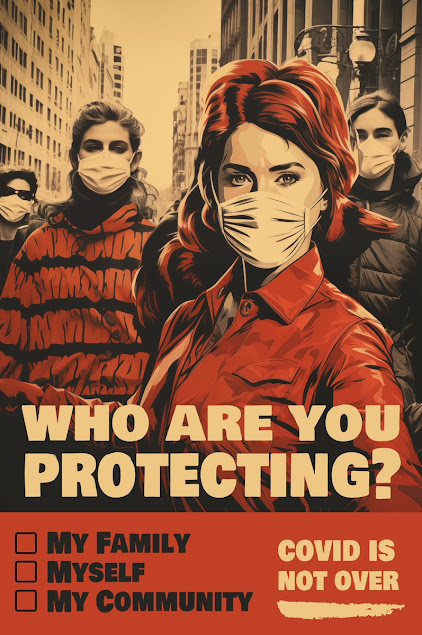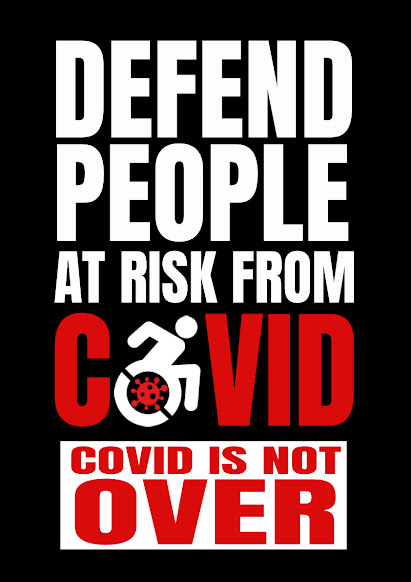Changing minds on big issues takes a long time and the work never ends.
Anti-drinking and driving groups appeared in the early 1980s, like MADD, typically made up of survivors or relatives of victims who saw first hand that something must be done to prevent so many disabilities and deaths. I was a teenager at the time, and my circle didn't think twice about driving hammered. I remember people saying things like these boring old ladies should get a life and stop telling us when we can and can't drive! We were all pretty sure we could drive just fine after a few. Who are they to tell us otherwise? Breathalizer legislation was on the books in the 60s, and RIDE programs were legal in the 70s, but it wasn't until MADD came about that we got flooded with school visits and PSAs and then really strict penalties were enacted for drunk driving including jail time! And they we all sobered up about it, realizing our inconvenience in staying the night or going back to get the car in the morning doesn't really warrant potentially taking a life.
Wheelchair ramps weren't an architectural requirement in public buildings until the 90s, but only after people with disabilities and allies fought for their rights to fully participate in society over decades, starting with Judy Heumann's winning lawsuit in 1970 against the NY Board of Ed that was preventing her equal access to the workplace because she uses a wheelchair. That was following by blocking traffic that got a weak bill passed, and then sit-ins that eventually forced politicians to listen and act. Check out Crip Camp, where activist Denise Jacobson said, "You can pass a law, but until you change society's attitude, that law won't mean much." And now we generally agree that everyone should have access to participate fully in society despite any form of disability. Right???
Early AIDS activists watched friends and loved ones die for years before they could get enough of an audience to have an effect on policy. "Sickness and death from HIV/AIDS was brought to a virtual standstill in the USA . . . by a vigorous public health campaign designed not around treating those who became infected, but by preventing infection in the first place." But it took years of activism, from 1979 to 1986, and many celebrities dying and children dying before public health started to issue PSAs, to actually teach the nation how to prevent the spread.
It takes a really long time to convince governments to impose safety measures that, in some way, affect people's freedom to do their own thing. It's not necessarily a bad thing on its own. to be careful about legislation, but it's very frustrating to be living during the activism phase watching so many children get sick. We've got children dying of Covid already. And lots of celebrities. But there's a huge coverup or spin or denial that has people claiming that, for instance, a fatal heart-attack at 13, 17, 27, and 44, all within a day of each other, is totally normal now. When my healthy friend succumbed to a heart attack in his early 60s, people were so fast to say that people die of heart attacks in their 60s all the time!! Instead of, you know, sorry for your loss. It's all ABC: Anything but Covid.
In Canada, infection-acquired seroprevalence of Covid in children 2-19 is between 76 and 82%. Seroprevalence measures the level of a pathogen in the population using blood samples from blood donors, lab blood samples, and research participants. They eliminate any antibodies from spike proteins, which could be due to vaccination or infection, to get a very accurate number of infections: 79.4% in ages 2-4, 76.3% in ages 5-11, and 82.2% in ages 12-19. This mass infection of the next generation with a virus, that creates micro-clots in the blood and later profound illness, can't possibly avoid having an enormous effect on the rest of our lives. Here's the monthly excess death rate in the UK by age and gender. Those first two columns destroy me, but maybe I'm just too sensitive... or something.
Or maybe I just know too much - like this from LongCovidHell:
"People with HIV thought they'd recovered from a two-week cold/flu virus until 5-10 years later. People with Post Polio Syndrome thought they'd recovered too. People who say they've recovered from Covid have no idea what's going on inside their body."
There are small successes here and there. Glasgow Women's Library recently offered one solution:
"In response to feedback, we will now invite visitors to GWL to wear masks and to observe social distancing on Friday afternoons between 1 pm and 4:30 pm. During this time, you can expect that staff and volunteers will also wear masks when moving around the building, unless they are exempt. If you do not have a mask on arrival, we will offer you one."
I've written to stores in my area about designating the first hour of the day as a mask only hour, which would be so easy for them. I find that's when the masked all go anyway, likely because we know that the virus lingers in the building for hours and accumulates as the day progresses. I think the reason so many refuse to do something like this (all except the comic book store which has masks on Thursdays), is that it's another reminder of the pandemic. It's not so much that masks are uncomfortable or difficult, but that it's far too painful to be reminded of all the sick and dying and dead.
It take courage to look this level of preventable death and disability in the face regularly and to wear a mask in public.
In light of current Covid numbers, I made the bold move on a school WhatsApp site to ask,
"This term, for the first time, my request for masks in my classes has had minimal effect. Right now, based on wastewater and hospitalization rates, Covid cases are higher than at any time except for Dec/21 wave. It's a brain-invasive disease with serious longterm consequences, and most transmission is from people who feel perfectly healthy at the time. Any thoughts on how to make the school a safer place for everyone??"
It's a tiny college, with just one building and that offers the grad program, Spiritual Care and Psychotherapy. These are burgeoning therapists, so I actually expected a different kind of response than I might get on Twitter, but it was a similar mix. Some were surprised that anyone wouldn't mask when asked. But most of the replies, mainly DMs, were along the lines of "just stay home then," albeit couched in kinder words. And I didn't find a single person willing to work with me on any action towards raising awareness.
It reminded me of my first teaching gig back in 1991, when AIDS was finally just being recognized as not a gay disease but gay-bashing was still a sport in our local parks. I had a discussion with a class about how to manage the rampant homophobia in our city, and one students said, so earnestly and with great kindness, we could just put all the gay people on an island somewhere with everything they might need, and make it nice for them. I can't remember how I responded at the time, but now I would take a page from Jane Elliott and say to the blue-eyed boy: If suddenly there were a disease that seemed to mainly affect people with blue eyes, would you want to be shuttled off to a nice island somewhere, away from family and friends that don't have blue eyes?
Or be told to find a way to stay at home?
It's really hard to get people to understand something that's not directly affecting them. It feels like nothing will shift until more people know someone who has clearly died or become disabled from Covid. A frightening proposition. All the work around drunk driving should have taught us concern for how our careless actions affect others. The work the disability activists did should have taught us the problem with excluding people from full participation by refusing to create safer spaces for us all. And the work from AIDS activists should have taught us the horrors of watching people suffer and die from a disease that is largely PREVENTABLE. But we are loathe to learn these lessons. So activist have to keep pushing just to stay in the same place.
People once had to beg for help to get up a flight of stairs to be able to get into a building until ramps and elevators were mandated, and now we have to beg others to please wear a mask in public buildings and transportation until clean air is mandated.
A haiku for those of us still in the game,
Be like fierce raindrops
Dripping on a rock: drip ... drip ...
Erode that fucker!



2 comments:
I am doing my best to be a fierce raindrop. But more and more I am just 'staying home' and only go out when I really need to do so. I do have friends who mask when we are together, but I'm tired of asking those 'friends' who don't, to please put one on. Like the pharmacy today, when I was the *only* person in a mask, even the pharmacist, who *saw* I had a mask on, and didn't bother putting one on. I could have made a fuss, but it was first thing in the morning, and, as you say, the viral load probably wasn't all that high in the little consulting room, so I crossed my fingers and hoped. So far I have not had Covid, and I intend to keep it that way, even if it means turning into a hermit...
I hear you. It is so hard to keep on going. I wouldn't be able to without being part of covid cautious groups on social media. Support is invaluable when you suddenly find yourself one of the minority, openly taunted by others. We need to become a neighbourhood of hermits!!
I'm at a crossroad right now deciding if I risk my health by staying in classes in which people won't mask - a full room of people sometimes for 7 hours straight - or just drop out and find a new path. It's not just my own health, but I also find it painful to watch others chatting away in class with one in the group coughing a low rattly cough and the rest just ignore it as if it's just a cold. To me it feels like watching people juggle live grenades. I can't be in the same room with that - it's just too painful to watch. I'm too sensitive for this part of the show!! Yesterday I left class halfway through when I was partnered with someone coughing. I did the entire assignment and gave my partner all my work online, and walked out knowing I'd lose all the marks for that assignment because it was being marked as a presentation and attendance was mandatory. And nobody in power there sees any connection to disability issues in the 70s - people excluded because it's too much trouble to build a ramp and elevator. SO frustrating!!!
Post a Comment